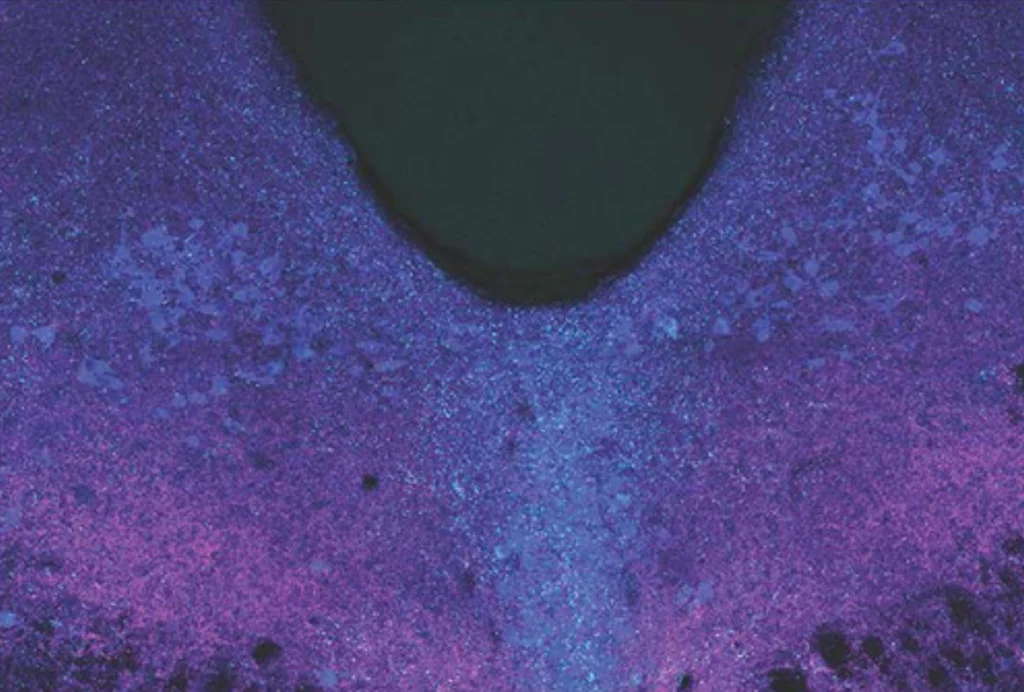Cortisol
Recent articles
Neurotransmitter switch-up helps fan extreme stress into full-blown fear
The flip occurs when certain neurons in the dorsal raphe start to express the chemical GABA instead of glutamate, a new study shows.

Neurotransmitter switch-up helps fan extreme stress into full-blown fear
The flip occurs when certain neurons in the dorsal raphe start to express the chemical GABA instead of glutamate, a new study shows.
Setting up a frog colony and pair bonding with Lauren O’Connell
To become a scientist, O’Connell first needed to leave the family farm.

Setting up a frog colony and pair bonding with Lauren O’Connell
To become a scientist, O’Connell first needed to leave the family farm.
Explore more from The Transmitter
Lack of reviewers threatens robustness of neuroscience literature
Simple math suggests that small groups of scientists can significantly bias peer review.

Lack of reviewers threatens robustness of neuroscience literature
Simple math suggests that small groups of scientists can significantly bias peer review.
Dendrites help neuroscientists see the forest for the trees
Dendritic arbors provide just the right scale to study how individual neurons reciprocally interact with their broader circuitry—and are our best bet to bridge cellular and systems neuroscience.

Dendrites help neuroscientists see the forest for the trees
Dendritic arbors provide just the right scale to study how individual neurons reciprocally interact with their broader circuitry—and are our best bet to bridge cellular and systems neuroscience.
Two primate centers drop ‘primate’ from their name
The Washington and Tulane National Biomedical Research Centers—formerly called National Primate Research Centers—say they made the change to better reflect the breadth of research performed at the centers.

Two primate centers drop ‘primate’ from their name
The Washington and Tulane National Biomedical Research Centers—formerly called National Primate Research Centers—say they made the change to better reflect the breadth of research performed at the centers.